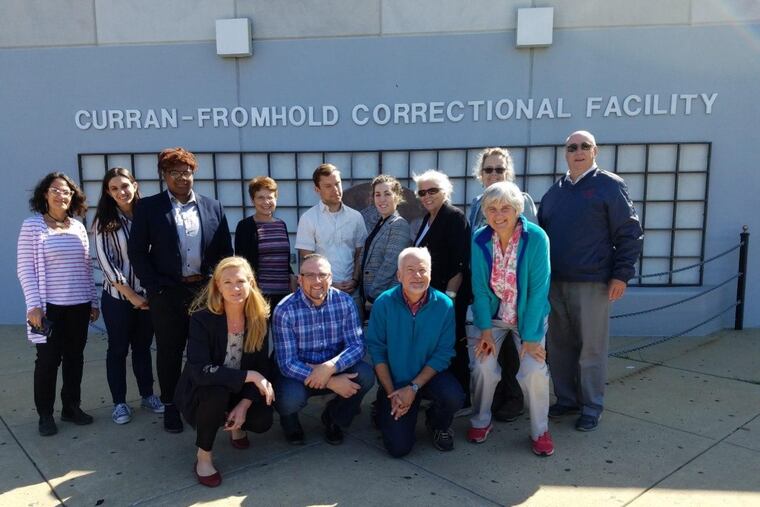An urban-rural alliance builds criminal justice reform across political divides | Opinion
We've shown that people can transcend political and other divides to tackle criminal justice reform.

When Will Bentley was just 14 years old, he was locked up in an adult jail. Five years later, this young African American man from Philadelphia remembers how the meals served weren’t enough for a growing boy. The only alternative was to borrow money from his sister to buy the high-priced food from the jail commissary.
Betsy Hower is a white septuagenarian who says she is “from the sticks.” She resides in largely white and politically conservative Adams County, 110 miles west of Philadelphia. A President Trump supporter, Betsy previously chaired the Adams County Republican Party. Unlike Bentley, Hower knew very little about the criminal justice system until recently. A lifelong teacher, Hower joined the effort to learn more.
This fall, Bentley, Hower, and 25 other people — roughly half from Philadelphia and the other half from Adams County — participated together in a unique “Consensus-Building for Incarceration Reduction” program funded by the Vera Institute of Justice. During four workshops in Philadelphia and Adams County, they learned from experts inside and outside jail, toured a correctional facility, and shared their own experiences with the justice system.
Amid the learning and collaboration, the group found connection through shared meals — and shared humanity. Bentley drew from the artivism — using music or other art forms to advocate for change — that he employs as a community organizer for the Youth Art & Self-Empowerment Project. He sang to the group:
So tell me what you do when you only 17? They lock us up in cages and they throw away your dreams. And tell me what you do when you got a family, but the only time you see ‘em when you go to sleep and dream?
Two guest speakers, both African American, were former “juvenile lifers” who had been serving life sentences without the possibility of parole for crimes committed before age 18. They brought the group to tears at the Trinity Memorial Church with their stories from more than 60 combined years in prison. Acknowledging previous wrongdoing, they described the challenges of transitioning to life on the outside and expressed their desire to effect positive change. Both emphasized the power of education to keep others out of the system. Hower called the experience “life-changing.”
In a country where nearly one in three adults has a criminal record, Bentley and Hower discovered how mass incarceration afflicts different communities in different ways. Philadelphia has the country’s highest incarceration rate among large metropolitan areas, but reforms are lowering incarceration rates. Adams County is home to a correctional facility that detains “only” a few hundred people but has experienced a dramatic jump in jail incarceration and prison admissions over the past few decades. Despite the differences, both communities experience a criminal justice system that inflicts trauma, violates individual liberties, breaks up families, widens racial and economic inequalities, and increases our tax bills — all without increasing public safety.
But the group didn’t just identify problems. First, they reached consensus on needed reforms and issued a public statement (available at uraction.org), embracing the fundamental right to the presumption of innocence and endorsing rehabilitation over retribution.
Now they’re taking action. Bentley is leading a team to raise public awareness about excessive prices in jail commissaries in Philadelphia. Hower is working to reduce pretrial detention in Adams County. Other group members are focused on keeping young people out of adult jails across the state, reducing the use of cash bail, and strengthening reentry services.
The next 12 months before our 2020 election are pivotal for Pennsylvania and the U.S. Mass incarceration is just one of many challenges that require cross-community solutions. How we tackle issues that impact all communities will either bring us together or further exacerbate the ideological, geographic, and cultural divides in this state and across the country.
Now more than ever, urban and rural communities must come together to solve problems in and across our communities. Bentley and Hower prove we can do it. Join this movement for local action and national unity. We all have a role in shaping the country we wish to live in.
Joseph Bubman is the executive director of Urban Rural Action, a nonprofit that has partnered with the Pennsylvania Prison Society to implement the “Consensus-Building for Incarceration Reduction” program. https://www.uraction.org/criminaljustice